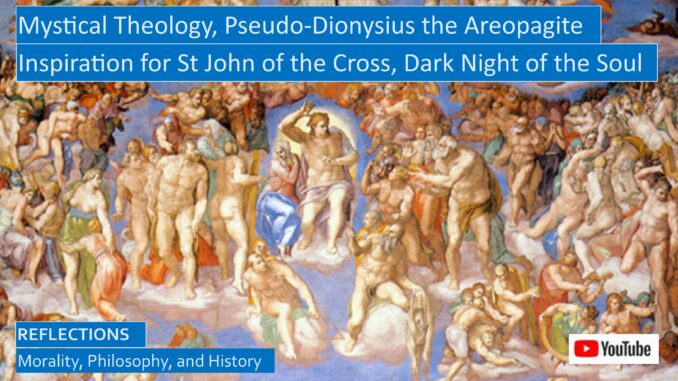
What is the Dark Night of the Soul? Many are misled into thinking that the dark night of the soul is a dark place, but St John of the Cross views the dark night of the soul not from his mortal perspective, but from perspective of the eternal, the unknowing, where light we cannot perceive is so luminous that we see it as darkness, this Mystical Theology he draws from the poetry of Dionysius.
YouTube video for Pseudo-Dionysius the Areopagite: https://youtu.be/wlr55ddb-lc
Video for St John of the Cross and Seven Capital Sins: https://youtu.be/DgL7Y5pIFAU
Video for this video: https://youtu.be/6VffPIzfT-o
Video script with more book links: https://www.slideshare.net/BruceStrom1/dark-night-of-the-soul-by-st-john-of-the-cross-and-mystical-theology-of-pseudodionysus
But from our mortal perspective, we can perceive the dark night of our soul as truly a dark place, when we truly feel abandoned by God during the trials we face in our lives. We see this in the life of Abraham, he has an astounding epiphany where God bids him to view the stars in the sky, the Lord said to Abraham, “Look toward heaven and count the stars, if you are able to count them.” Then the Lord said to him, “So shall your descendants be.”[1]
But months, perhaps years pass, his wife Sarah is old and wrinkled, in the next verses Abraham loses patience, so Sarah offer up her servant to her husband, which is an accepted practice in the ancient world to continue your bloodline, so you have someone to take care of you in your old age, and her handmaiden Hagar gives birth to Ishmael.
Monastics also view the dark night of the soul as those periods of spiritual aridity, where their prayers for their hearts to be touched by the Divine Light are not heard, when the spiritual joy they once experienced is subdued. Many of us do not experience these quiet times of meditation are crowded out by the rush of the modern world and the eternal presence of television and the internet, we spend little time reflecting and praying.
WE BEGIN OUR DISCUSSION
What is the Dark Night of the Soul? Our perception of our dark night of the soul evolves as our spiritual struggles progress and we are purged of our imperfections, our progress in our Love of God spiritual life can never be separated from our progress in increasing our love for our neighbor. We can never be ready for a life of prayer until we habitually live, in the words of St John of the Cross, “by the practice of earnest striving in the virtues,” as this does not have in a weekend Jesuit retreat or two, but takes many years, all our lives, and never really ends.
St John of the Cross constantly refers to struggles of Job in the Dark Night of the Soul. Job is the devout layman, Job is like us, Job is earning his living in the world with a wife and many children. Jobs spiritual struggles begin with his earthly struggles when, in one day, marauders steal all he owns, and then a fierce storm demolishes his home, killing all his children. Job refuses to follow the advice of his wife, who tells him he should curse God and die, but rather praises God, praying that from dust I came and to dust will I return, I will praise the Lord. But when the Lord permits the Accuser to touch his skin so painful boils would fester, Job sits on an ash-heap to scrape his boils and cry out, Why me, Lord? Why these afflictions?
St John of the Cross says that God left “Job naked on a dung-hill, abandoned and even persecuted by his friends, filled with anguish and bitterness, the earth covered with worms.” But God does not abandon Job indefinitely, after he converses with his friends over many days, the Lord “the Most High God” lifted Job up “from the dung-hill, speaking with him face to face, revealing to him the depths and heights of His wisdom, in a way that He had never done in the time of his prosperity.”[2]
We increase our love for our neighbor by combating the capital sins in our spiritual lives, the sins of spiritual pride, avarice, spiritual luxury, wrath, spiritual gluttony, and spiritual envy and sloth. St John of the Cross teaches us that for all of these sins “God leads into the dark night those whom He desires to purify from all these imperfections so that He may bring them further onward.” Regarding spiritual luxury, the dark night purifies the love we have for our close friends, those friendships who increase in our hearts our Love of God should increase, but those friendships that starve our Love of God should diminish.
Those who are prone to the spiritual sin of wrath often show an impatience with their imperfections that is not humility, but those who are spiritually meekness show patience. Those are prone to the spiritual sins of gluttony sometimes think that the “multitude and pleasantness” of their devotions make them more pleasing to God. He concludes his discussion of the sins of envy and spiritual sloth that in the dark night “weans us from the breasts of sweetnesses and pleasures, giving us pure aridities and inward darkness,” compelling us to “win the virtues.”[3]
St John of the Cross teaches us how to defeat our propensity for these and other capital sins in Book 1 of his Dark Night of the Soul.
video and blog:
PURGATION AND PURIFICATION
What does St John of the Cross mean when he says that God only leads into the Dark Night those “whom he desires to purify?” Perhaps God can only purify those who truly desire purification in their heart, perhaps St John of the Cross is suggesting that God purifies our heart not on our timetable, but on His timetable.
Once we have purged from our souls our tendency to commit the capital sins, St John the Cross teaches that we may be ready to enter into the Dark Night of the Soul. “This night, contemplation, produces in those who are spiritual two kinds of darkness and purgation, corresponding to the two parts of man’s nature, the sensual and the spiritual. Thus, one night or purgation will be sensual, wherein the soul is purged according to sense, which is subdued to the spirit; and the other is a night or purgation which is spiritual, wherein the soul is purged and stripped according to the spirit and subdued and made ready for the union of Love with God.”
St John of the Cross teaches us that the conduct of beginners who are “on the way to God is ignoble and has much to do with their love of self and their own inclinations. God desires to lead these beginners further” down the path. “God seeks to bring them out that ignoble kind of love to a higher degree of Love for Him, to free them from the ignoble exercises of sense and meditation,” “and lead them to commune with Him more abundantly, freed more completely from imperfections.”
St John of the Cross and many monastics teach us that the spiritual life requires work, prayer, effort, and reflection on our part. This seems foreign to modern Christians, who too often search for a shallow feel-good kumbaya kind of Christianity.
St John of the Cross teaches us, “When we have practiced for some time in the way of virtue and have persevered in meditation and prayer, find sweetness and spiritual pleasure, we lose our love of the things of this world and gain some degree of spiritual strength in God, enabling us, to some extent, to refrain from creature desires, so that for God’s sake we can suffer a light burden and a little aridity without turning back to time that was more pleasant.”[4]
Does St John of the Cross compare the aridities of the spiritual journey to the aridities of the Spanish plains with hot, dry summers relieved by mild, raining winters? We know many marriages fail because we want our spouses to somehow make us happy, and we expect our marriage to be an eternal courtship. Perhaps St John of the Cross is warning us that this is an analogy in our spiritual life, that we should not expect Jesus to make us happy either, that our spiritual life will not be all sweetness and pleasure, that we should expect aridities and spiritual darkness.
Once we have, after many trials, loosened the grip of the capital sins on our soul, then St John of the Cross teaches us that we experience the “dark night as an inflowing of God into the soul, which purges it from its ignorance and imperfections, habitual, natural and spiritual,” “a mystical theology. Herein God secretly teaches the soul and instructs it in perfection of love, without its doing anything.” “By purging and illuminating the soul, the Almighty prepares it for the union of Love with God.”
St John of the Cross asks, “Why is the Divine Light here called by the soul a dark night?” “There are two reasons why Divine wisdom is not only night and darkness for the soul, but is likewise affliction and torment. The first is because of the height of the Divine Wisdom, which transcends the talent of the soul, and in this way is darkness to it; the second, because of its vileness and impurity,” which causes pain “and is also dark.”[5]
Having purged the soul of its desire for the spiritual capital sins, St John of the Cross expounds on the first stanza of his poem that he refers to in the Dark Night of the Soul:
“On a dark night, kindled in Love with yearnings, oh, happy chance!
I went forth without being observed, My house being now at rest.”[6]
Earlier, St John of the Cross teaches us that when our Love for God is kindled into a stronger flame, our “yearnings for God can become so great in the soul that our very bones dry up from this thirst,” “their warmth and strength dwindling through the intensity of the thirst for love, for the soul feels that this thirst of love is a living thirst.”[7]
St John of the Cross teaches us that “when this Divine light of contemplation assails the soul which is not yet wholly enlightened, it causes spiritual darkness,” but not darkness as we experience darkness. “St Dionysius and other mystical theologians call this infused contemplation a ray of darkness, for the soul that is not enlightened and purged, for the natural strength of the intellect is transcended and overwhelmed by its great supernatural light.”[8]
Dionysus speaks of the “brilliant darkness of a hidden silence” in his beautiful poem on the Trinity that opens his work, The Mystical Theology. Dionysius influenced many other Church Fathers with his mystical theology, including St Maximus the Confessor and St Thomas Aquinas, as well as St John of the Cross, and many others.
The Mystical Theology, which can be read as a mystical poem, speculates on the spiritual beauty of our God, who by his very nature reaches down to us, enabling us to reach up to Him, as Moses climbed the mountain to receive the commandments from God:
“Trinity! Higher than any being, any divinity, any goodness!
Guide of Christians in the wisdom of heaven!
Lead us up beyond unknowing and light,
up to the farthest, highest peak of mystic Scripture,
where the mysteries of God’s Word
lie simple, absolute and unchangeable
in the brilliant darkness of a hidden silence.”
How can Dionysius say that the Trinity is “beyond unknowing and light,” while it is “in the brilliant darkness of a hidden silence?” Simply put, since we cannot adequately describe God in mere words, this spiritual light and spiritual darkness are not opposites, they are not like the opposites of light and dark, and day and night in our material world.
Dionysius, when he describes the neo-Platonic “Cause of all beings,” the “Cause of everything,” our God who creates everything ex nihilo, out of nothing, says this:
“We should posit and ascribe to the Cause of all beings all the affirmations we make in regard to beings, and, more appropriately, we should negate all these affirmations, since the Cause surpasses all being. Now we should not conclude that the negations are simply the opposites of the affirmations, but rather that the Cause of all is considerably prior to this, beyond privations, beyond every denial, beyond every assertion.”
A footnote explains that this section deliberately contradicts a nearly similar statement made by Aristotle, saying that negations are the opposites of affirmations,[9] but that makes sense only when pondering mortal matters of our earthly experience, not our transcendent God who operates outside of time, and outside of logic.
Another apparent juxtaposition of opposites is the question, Should we Fear God, or should we Love God? Some say these are opposites, some say that with the coming of Jesus we no longer need to Fear God, that we should not only Love God. However, the Old Testament bids us to both Fear God and Love God. We can both Fear God and Love God, as our Love should not be a feel-good shallow kumbaya kind of love, but a deep love where we worship God in awe of his power and righteousness and incomprehensibleness.
The “brilliant darkness of a hidden silence” described by Dionysus reminds us how when God appears to Elijah, and this was when Elijah fled from the wrath of Jezebel to hide in a cave, where he was fed by ravens:
“The Lord said,
‘Go out and stand on the mountain before the Lord,
for the Lord is about to pass by.’
Now there was a great wind,
so strong that it was splitting mountains
and breaking rocks in pieces before the Lord,
but the Lord was not in the wind;
and after the wind an earthquake,
but the Lord was not in the earthquake;
and after the earthquake a fire,
but the Lord was not in the fire;
and after the fire a sound of sheer silence.”[10]
In the Revised Standard Version, we read how God is the sound of sheer silence. Some translations, including the New King James Version, say “still, small voice,” others a “gentle whisper.”
We continue with the poetry of Dionysius opening his Mystical Theology:
“Trinity! Higher than any being, any divinity, any goodness!
Guide of Christians in the wisdom of heaven!
Lead us up beyond unknowing and light,
up to the farthest, highest peak of mystic Scripture,
where the mysteries of God’s Word
lie simple, absolute and unchangeable
in the brilliant darkness of a hidden silence.
Amid the deepest shadow
they pour overwhelming light
on what is most manifest.
Amid the wholly unsensed and unseen
they completely fil our sightless minds
with treasures beyond all beauty.”[11]
Is Dionysus describing this darkness as a Divine Light that shines so bright that it blinds our sensual love, brightening our spiritual love? Dionysus tells us, “the more we take light upward towards God, the more our words are confined to the ideas we are capable of forming; so that now as we plunge into that darkness which is beyond intellect, we shall find ourselves not simply running short of words but actually speechless and unknowing.” St John of the Cross discusses how “the brighter and purer is the supernatural and Divine light, the more it darkens the soul,” a darkness that increases the awe in our souls for the beauty and Love of our Almighty God.[12]
Andrew Louth in his book on Denys the Areopagite observes that “ecstasy, for Denys, does not primarily mean an extraordinary experience, it means having one’s life centered on the beloved so that the life of the beloved is one’s own. It is ‘suffering’ in that it means receptivity of such a high degree that the one who Loves God is a vehicle of His power and love. It is ecstatic in the sense that the self of the lover is driven out by the Love of God.”[13]
When we do not understand what Dionysius is saying, perhaps it is because he is expressing the inexpressible, perhaps we should read Dionysius as we read Kierkegaard, enjoying the poetry of philosophy, relaxing our urge to parse every thought into a coherent system.
Andrew Louth sees the Mystical Theology as a type of spiritual ascent, “a contemplative union with God, where the soul abandons forms of prayer that depend on imagery and reasoning and learns an openness to God Himself in the darkness of the abandonment of techniques within its control.”[14] Dionysius compares this journey to the ascent of Moses up Mount Sinai, who “passes beyond the summit of every holy ascent, leaving behind every divine light, every voice, every word from heaven, plunging into the darkness where, as scripture proclaims, the dwells the One who is beyond all things.” “Moses breaks free of what is seen and unseen, plunging into the truly mysterious darkness of unknowing.”
Louth sees this journey as a reflection of the Divine Liturgy, an analogy that is understood by experiencing the chanting and incense and meditation of an Orthodox or Byzantine Eastern Liturgy.[15] To Louth, the liturgy carries into our living a godly life, demonstrating our faith, “Liturgical action is an invitation to open oneself to the divine love: to respond to that invitation is to allow the whole of one’s life to be transformed, to be deified, to become a vehicle for God’s Love in the world.”[16] In other words, the liturgy does not end on Sunday, it extends throughout the whole week.
Louth notes many parallels between the Mystical Theology and St Gregory of Nyssa’s work, the Life of Moses, and since he says this, and St Gregory of Nyssa is such a joy to read, his writing style even shines through in the English translation, as bright shining as his poetic theology.
There is another ascent by St Gregory of Nyssa, out of the Plato’s allegorical cave of ignorance, past Greek philosophy and up the mountains leading to the heavens where God resides, and in our video were compare his work to the famous work by CS Lewis where pilgrims ascend eternally this mountain of heaven.
https://youtu.be/wuqwy3GyO_4 and https://wp.me/pachSU-eK and https://wp.me/pachSU-y8
When you live through a dark night of the soul, are you living in a type of purgatory on earth? St John of the Cross constantly refers to the purgation of the soul and discusses the sufferings of purgatory as if they could purge our soul in this life when he says that those who suffer in purgatory wonder “whether their pains will ever be over. Though they have the habit of the three theological virtues, faith, hope, and charity,” their current sinful condition keeps them from “enjoying the blessing and consolation of these virtues.” Though they “have a great Love for God, this is no consolation to them, since they cannot think that God loves them or that they are worthy that He should do so.” They doubt their salvation, the worry that they will be “cast out by God forever.”[17]
In the last chapter of Mystical Theology, Dionysius describes Almighty God, translated here as the Supreme Cause, according to negative theology, describing the Supreme Cause not by describing God, which is impossible, but mainly by describing what the Supreme Cause is not.
Dionysius teaches us, “The Supreme Cause is not soul, or mind, nor does it possess imagination, conviction, speech, or understanding.” “It cannot be spoken of, and it cannot be grasped by understanding. It is not number or order, greatness or smallness, equality or inequality, similarity or dissimilarity. It does not live nor is it life. It is not a substance, nor is it eternity or time. It cannot be grasped by understanding since it is neither knowledge or truth. It is not kingship. It is not wisdom. It is neither one nor oneness, divinity nor goodness.”
If this depiction of the Supreme Cause sounds more like the immovable neo-platonic Supreme God in the Heaven of the forms than the Christian God, you would be right, as Denys draws heavily from the neo-platonic philosophy of Proclus, in some places copying whole paragraphs from Proclus. The Platonic Supreme Being is an immovable being from whom all creation and goodness emanates into the world.
Dionysius continues, “The Supreme Cause falls neither within the predicate of nonbeing or of being. Existing beings do not know as it actually is and it does not know them as they are. There is no speaking of it, nor name nor knowledge of it. Darkness and light; error and truth; it is none of these.”
This is figurative language, Dionysius is not saying that God does not exist, but that God exists beyond our comprehension of non-existence or existence. God is truly transcendent, transcendent beyond our feeble attempts to use our mortal-bound language and comprehension to understand the Divine.
This is evident as Dionysius continues, “The Supreme Cause is beyond assertion and denial. We make assertions and denials of what is next to it, but never of it, for God is both beyond every assertion, being the perfect and unique cause of all things, and, by virtue of His preeminently simple and absolute nature, is free of every limitation, is beyond every limitation; God is also beyond every denial.”[18]
[1] https://www.biblegateway.com/passage/?search=genesis+15&version=NRSVCE
[2] St John of the Cross, Dark Night of the Soul (New York: Doubleday, 1990, 1959, originally 1579, translator, E Allison Peers), Book 1, Chapters 12, pp. 78-79.
[3] St John of the Cross, Dark Night of the Soul, Book 1, Chapters 3-7, pp. 44-60.
[4] St John of the Cross, Dark Night of the Soul, Book 1, Chapter 9, pp. 61-63.
[5] St John of the Cross, Dark Night of the Soul, Book 2, Chapter 5, pp. 100-103.
[6] St John of the Cross, Dark Night of the Soul, Book 2, Chapter 4, p. 99.
[7] St John of the Cross, Dark Night of the Soul, Book 1, Chapter 9, p. 73.
[8] St John of the Cross, Dark Night of the Soul, Book 2, Chapter 5, pp. 100-103.
[9] Dionysius, the Complete Works, The Mystical Theology, translator, Colm Luibheid, Introductions (New York: Paulist Press, 1987, originally around 500), Chapter 1.1-2, pp. 135-136.
[10] https://www.biblegateway.com/passage/?search=1+Kings+19%3A11-12&version=NRSVCE
[11] Dionysius, the Complete Works, The Mystical Theology, Chapter 1.1, p. 135.
[12] St John of the Cross, Dark Night of the Soul, Book 2, Chapter 8, pp. 115-119.
[13] Andrew Louth, Denys the Areopagite (New York: Continuum, 2001, 1989), p. 103.
[14] Andrew Louth, Denys the Areopagite, pp. 100-101.
[15] Dionysius, the Complete Works, The Mystical Theology, Chapter 1.2-3, pp. 136-137.
[16] Andrew Louth, Denys the Areopagite, p. 108.
[17] St John of the Cross, Dark Night of the Soul, Book 2, Chapter 6, p. 103+.
[18] Dionysius, the Complete Works, The Mystical Theology, Chapter 5, p. 141.

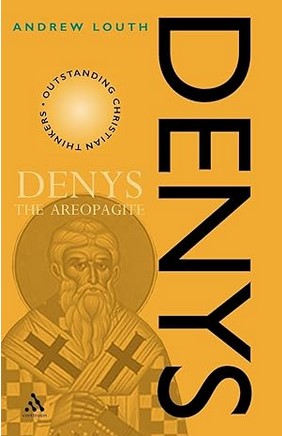
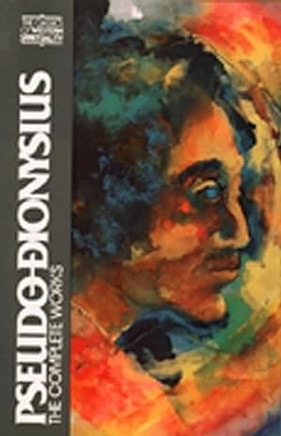
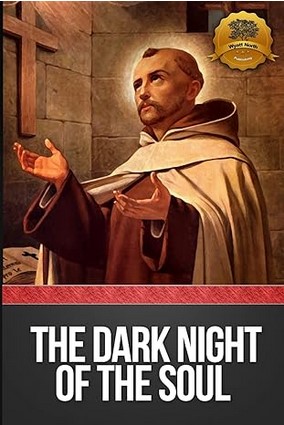
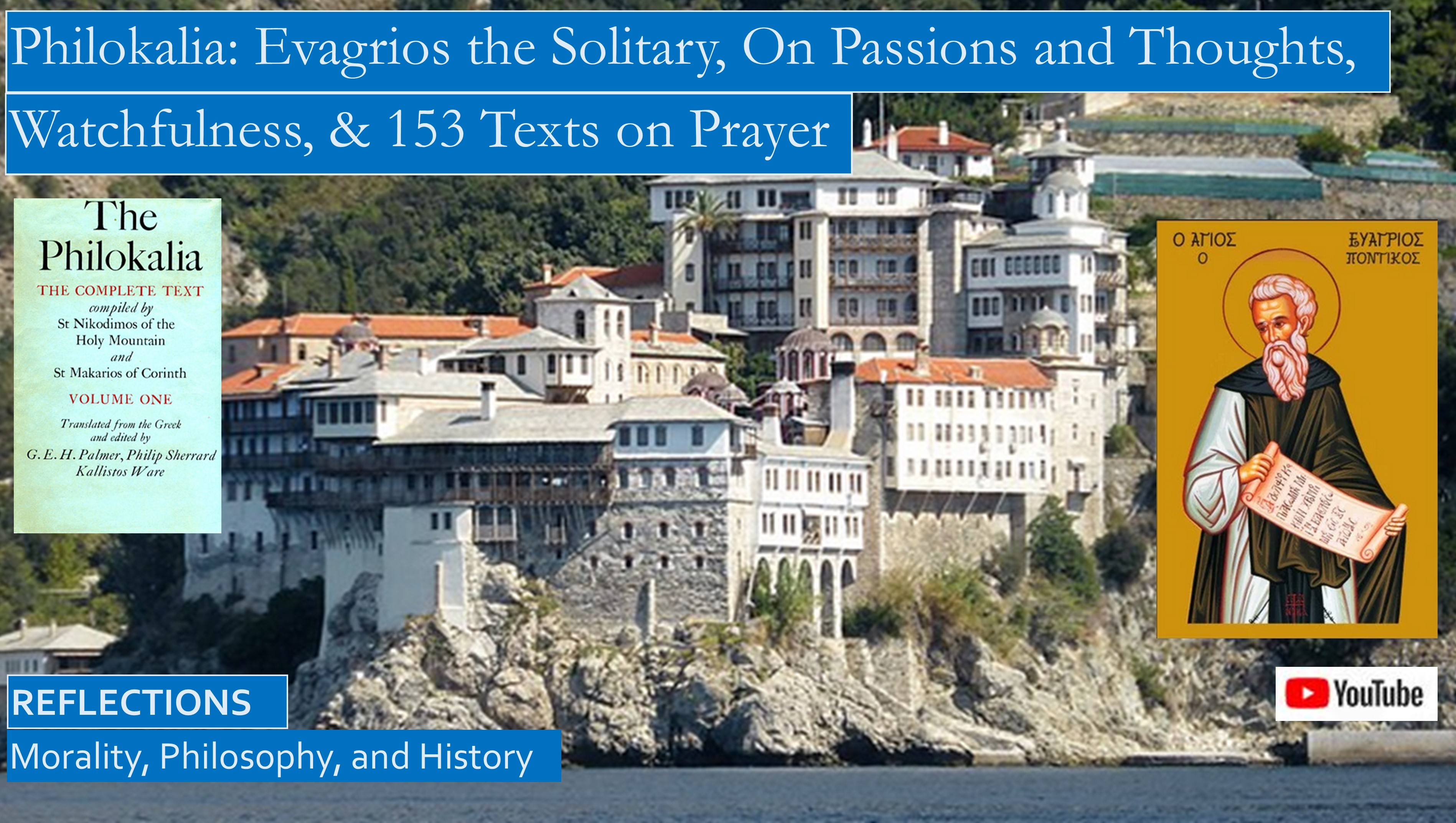
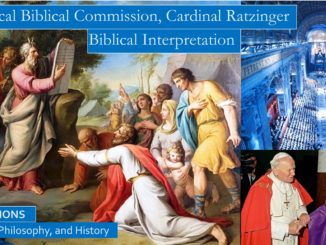
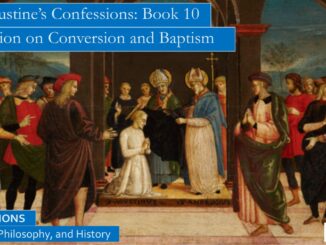
Be the first to comment